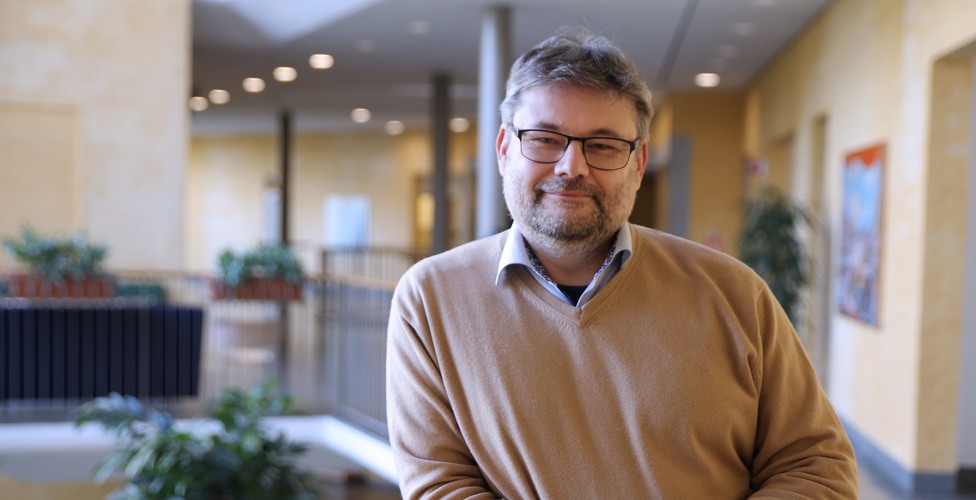Kristian Vlahoviček is a new international guest professor at the University of Skövde, financed by The Knowledge Foundation. During two years, he will be working part time at the School of Bioscience and strengthen this discipline at the University of Skövde.
The University of Skövde has been collaborating with the University of Zagreb, Croatia, for a number of years in the area of bioinformatics, and now has a more formal type of collaboration, through a visiting professor; Kristian Vlahoviček. This collaboration will benefit both students and partner companies linked to The School of Bioscience.
Connecting biology and information technology
– My field of research is bioinformatics, or computational biology, which means that we use computers to analyze our genes and try to understand how life works at the level of a cell. In this field we connect the field of biology with the field of information technology, so we can analyze the large-scale data and construct some useful knowledge out of it, to understand how life works, says Kristian Vlahoviček.
Back in Croatia, Kristian’s research group is focused on two areas; one being how animals develop from a single cell to a multi-cellular organism using computational biology. The other field is focused on bacteria and the role that the bacterial communities play in the life and well-being of humans.
– When we study bacteria that inhabit humans, (actually half of the cells in the human body belong to bacteria, which is quite impressive) we see that bacteria contribute a lot to our well-being, to our health, fitness and to our immune system. So when studying these “human passengers” we hope to find keys to improve human health with non-invasive treatments or some up with a treatment that act on the human associated bacteria rather than on the humans themselves.
How did you end up in bioinformatics?
– I started out as a computer geek and ended up in biology since biology has become a very digital discipline over the last two decades. DNA sequencing nowadays has become so much cheaper and powerful than it was 20 years ago, and the novel processes of extracting genetic information from big data has very much been the motivational drive in my line of research.
External partners will benefit
Professor Vlahoviček will be involved in teaching and student supervision but also in projects including external partners that will be able to benefit from his line of expertise through seminars, workshops and collaboration projects in the collaboration platform BioS (Bioscience for Society).
– Sharing this knowledge in state-of-the-art methods for large-scale data analysis with our collaboration partners in BioS will contribute to their long term competence development. We also expect that Kristian’s competence can boost the co-production in terms of utilization of our research finding and ideas for new collaboration projects, says Zelmina Lubovac, Deputy Head of Department at the School of bioscience at the University of Skövde.
Open for collaboration
– I look forward to working in an international environment and meet new schools of thought and also have the opportunity to connect with researchers in other disciplines at the University of Skövde. I am very open for collaboration projects, says Kristian Vlahoviček.
Professor Vlahoviček’s research topics are developmental and differentiation genomics, metagenomics, population genomics and glycomics, origins of multicellularity, epigenomics of cancer, development of computational methods and application of machine learning in genomics and molecular biology.

